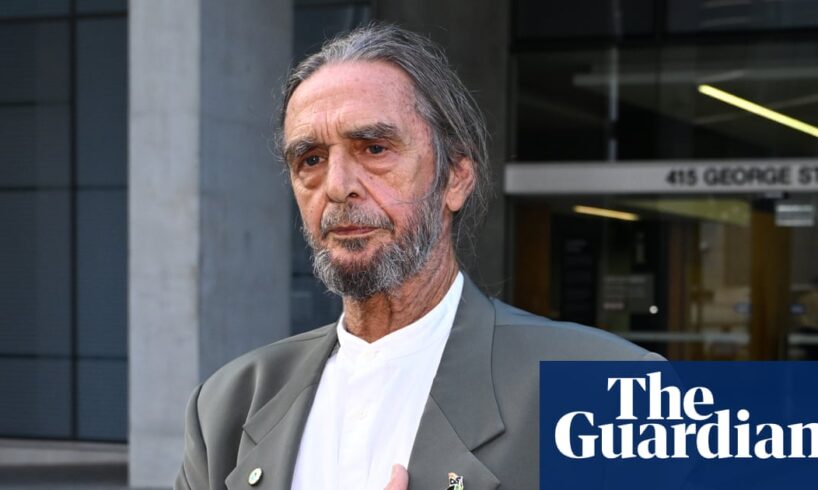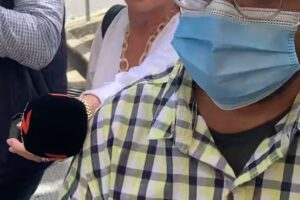
Terry Irving spent 1,671 days in prison for a crime he did not commit.
On Thursday, Queensland’s supreme court decided he was owed $130,000 in compensation for an ordeal that has consumed his life for more than three decades – years fighting from prison to clear his name, and 28 more seeking vindication.
Irving, an Aboriginal man from north Queensland, was maliciously prosecuted and wrongfully jailed in 1993 for a bank robbery in Cairns.
He was released from prison by the high court in late 1997, after the state conceded he had not received a fair trial. The chief justice, Sir Gerard Brennan, said he had “the gravest misgivings about the circumstances of this case” and that it was “a very disturbing situation”.
Since then, Irving has been seeking an apology and compensation for his years in prison and the toll it has taken.
Sign up: AU Breaking News email
That fight has been made more difficult by the lack of any statutory scheme or other remedy for people who have been wrongfully imprisoned.
People are only eligible for compensation if they can prove their prosecution was malicious. The Queensland government has repeatedly refused to consider an exgratia settlement or an apology.
In 2021, the Queensland court of appeal found that a police officer, Helen Maree Pfingst, maliciously prosecuted Irving, first arresting him in 1993 as an accessory to the bank robbery. While he was on remand as an alleged accessory, Pfingst investigated and later charged Irving as the robber.
The judgment – upheld by the high court – only entitled Irving to compensation related to the accessory charge, for which he was held on remand for eight days and seven nights and forced to provide DNA samples.
Irving had sought $960,000, with interest backdated to 1993. The supreme court ruled on Thursday that he was entitled to $130,000 with interest from 2011, when he began the case.
In her judgment, Justice Susan Brown said Irving had “fought for some 30 years to have the state recognise the wrong that occurred, without any apology being received from the state or [Pfingst].
“I am satisfied that conduct by the defendants has caused insult and humiliation and contributed to his prolonged sense of injustice by the disregard of the plaintiff’s rights and his seeking vindication arising out of what occurred.
“The conduct of [Pfingst] was not justifiable and was improper … [it] was a misuse of power by an officer who, in her role, held significant powers to act within the confines of the law.
“This case demonstrates the dangers of misusing power to bend the rules to catch the ‘bad guy’. It infects and undermines the justice system and leads to a distortion in the investigation process, which can lead to an innocent person being charged and feeling the weight of a system against them.”
skip past newsletter promotion
Sign up to Breaking News Australia
Get the most important news as it breaks
Privacy Notice: Newsletters may contain information about charities, online ads, and content funded by outside parties. If you do not have an account, we will create a guest account for you on theguardian.com to send you this newsletter. You can complete full registration at any time. For more information about how we use your data see our Privacy Policy. We use Google reCaptcha to protect our website and the Google Privacy Policy and Terms of Service apply.
after newsletter promotion
Irving spoke outside court during a hearing in 2024 and said “no amount of money” could make up for an ordeal that had placed him in a small cell at the Stuart prison, and had brought him now to the doorstep of Brisbane’s supreme court building.
“It’s been 31 years since I was wrongfully arrested for an improper purpose,” Irving said at the time.
“I’ve been exonerated, I’ve been vindicated, and I’ve been violated. But the state of Queensland refuses to acknowledge their role in this and give me an apology.”
Irving told Guardian Australia in 2021 about the impact of his wrongful imprisonment.
“It’s affected me in more ways that I can probably describe,” he said. “There’s a gap of five years in my life, five years in everyone’s lives that I’m connected to, because of what happened.
“Now there’s times when I’m sitting on my own and I reflect upon the enormity of the grief that I feel but that I don’t show. I wish I never had that baggage. But it does exist.”





